Andrews’ pre-poll power grab an electric shock for taxpayers
A re-elected Andrews government will control the electricity grid and effectively end coal-fired power in Victoria.
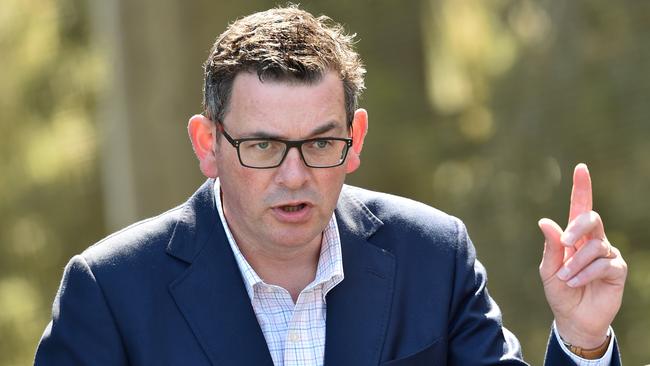
A re-elected Andrews government will take back control of the state’s electricity grid and effectively end coal-fired power generation in Victoria in little more than a decade through a renewable energy target of 95 per cent by 2035.
Ahead of the November state election, Premier Daniel Andrews announced the new policy on Thursday, prompting warnings from energy experts that returning electricity generation to state hands could increase power prices, expose taxpayers to massive fiscal risk, and even make the government’s renewable energy targets harder to reach.
The plan was condemned by energy generators as a “back to the future” announcement and “retrograde step”, but was backed by the Electrical Trades Union as a “fantastic development” for Victoria.
It follows a joint Albanese-Andrews government “rewiring the nation” announcement earlier this week – which aims to fast-track Victorian renewable energy zones and offshore wind development – and the launch earlier this month of the NSW electricity infrastructure road map. And last month, Queensland Labor Premier Annastacia Palaszczuk announced a $62bn energy plan, which includes a renewable energy target of 80 per cent by 2035.
Mr Andrews claimed his policy would “deliver cheaper power bills and lower greenhouse gas emissions” in a state that is currently dependent on coal for 60 per cent of its power. He also took aim at the Kennett Liberal government for selling off the SEC amid Victoria’s post-Cain-Kirner Labor government recession in the 1990s.
“The Liberals sold off public power assets to private, for-profit companies. They sold off Victoria’s essential services and sent much of the profits offshore – with the generators alone making $23bn in profits at our collective expense,” the Premier said.
The plan to revive the SEC would give Victorian taxpayers a 51 per cent stake in the commission and its wind and solar projects, at an initial cost of $1bn.
Mr Andrews said industry superannuation funds were the government’s preferred investment partners for the remaining 49 per cent.
“Unreliable, privatised coal will be replaced by clean, government-owned, renewable energy,” the Premier said.
“We’ve already taken soundings from the super industry and to say they are excited is an understatement.”
A new SEC office will be established in the Latrobe Valley town of Morwell, in Victoria’s east.
Labor is facing electoral challenges from the Greens in at least three inner city seats, and is targeting the seat of Morwell, following the retirement of independent former Nationals MP Russell Northe.
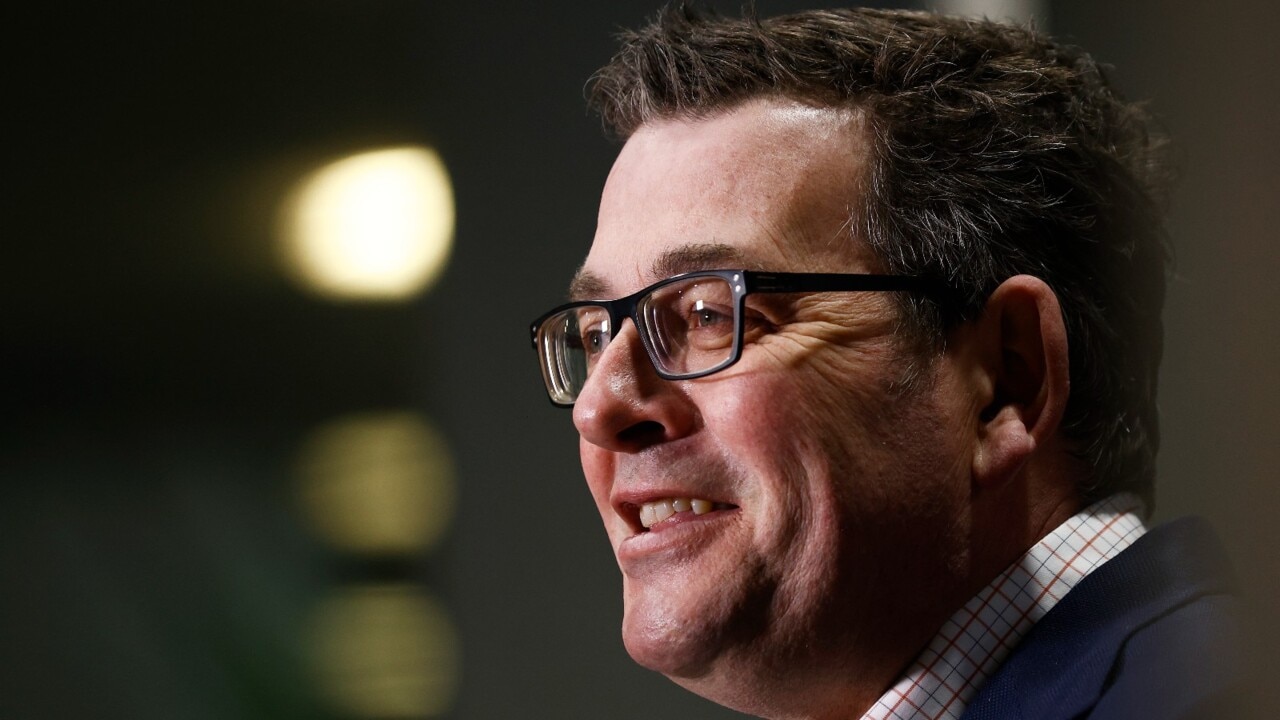
Mr Andrews announced new renewable energy targets of 65 per cent by 2030 and 95 per cent by 2035, bringing forward the government’s net-zero emissions target by five years, to 2045.
He also estimated the initiatives would increase gross state product by about $9.5bn and support 59,000 jobs through to 2035.
The Andrews government says the new SEC will be responsible for generating 4.5 gigawatts of renewable power – the equivalent replacement capacity of Loy Yang A, Victoria’s largest power station, which is being closed by AGL in 2035, a decade earlier than previously planned.
The owner of the Loy Yang B coal plant, Alinta, said its staff were shocked by Thursday’s announcement, given the generator had been due to remain open until 2047, but will now be forced to close 12 years earlier.
Alinta chief executive Jeff Dimery said the company had taken “strong steps” to prepare for the transition to renewable energy, “but we need to understand more about how the government intends to manage the cost of the expedited transition, protect communities and workers, and support us to invest in the replacement generation required to keep the lights on in the state.
“Our immediate priority and focus will be supporting our employees at Loy Yang B who will be understandably shocked by this announcement,” Mr Dimery said.
Grattan Institute energy program director Tony Wood said the announcement, with recent statements by the federal government, Queensland and NSW, demonstrated a renewed push by state and federal governments to “renationalise” the power sector.
Mr Wood argued governments had effectively made a call that markets could not be trusted to deliver an increasingly volatile transition from coal power to clean energy.
“We just have arrived at a position where the ministers whose governments contributed to the problem have concluded that the markets cannot deliver what they want, someone has to take control and it should be them. They are probably right,” he said.
“That means that the risks now sit with governments and some combination of taxpayers and consumers.
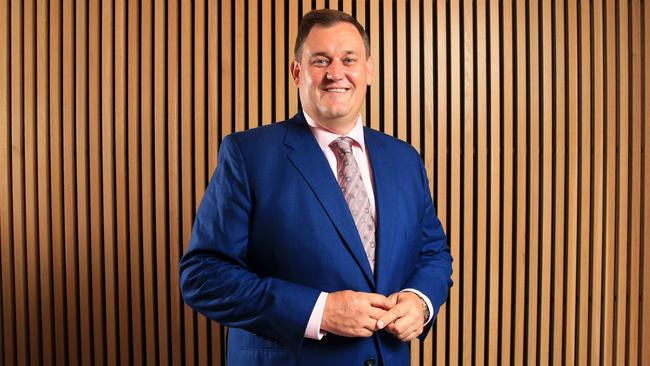
“I suspect that, despite the claims that this will all reduce power bills, the most likely casualty will be cost – although delivering the targets might be a close second.”
Green Energy Markets analyst Tristan Edis said he suspected the policy would be “good politics as voters with rose-tinted glasses experience large hikes in their power bills, warning that state-owned power companies “can be incredibly ruthless, profit-oriented operators”.
“Some have been big blockers of emission-reduction policies. They have regularly exploited their market power (with) network charges higher than needed (because they’re) used to raising state government revenue. (They) ain’t saints,” Mr Edis tweeted.
Australian Energy Council chief Sarah McNamara said the move was a “back to the future” announcement and “retrograde step” which would damage market and investor confidence.
“The surprise announcement contains little detail but looks likely to chill private investment and see Victorian taxpayers carry the lion’s share of risk around new generation,” Ms McNamara said.
“The AEC also rejects the suggestion that the privatised industry has not served Victoria well.
“Energy privatisation was a key part of the state’s economic and fiscal recovery from its severe 1990s recession and delivered $22.5bn ($40.2bn in today‘s money) of much-needed capital, which enabled the development of a more reliable and innovative industry for the benefit of all consumers,” she said.
Electrical Trades Union state secretary Troy Gray, who represents 20,000 Victorian electrical workers, hailed the plan as a “fantastic development”, claiming the current state opposition’s policy of reviewing all state government projects costing more than $100m “is simply code for cutting wages and conditions”.
“The ETU is excited to work with a re-elected Andrews Labor government to build state-controlled renewable energy,” he said
Environment Victoria lauded the move as a “monumental shift” of “national and global significance”, and Deputy Greens leader Ellen Sandell said it was “great to see more political parties and governments jumping on board with stronger climate action”.
Opposition Leader Matthew Guy’s office refused to provide comment from energy spokesman David Southwick, referring The Australian to the Coalition’s commitment to legislate a 50 per cent reduction in emissions by 2030 and fund a $1bn strategy to support clean hydrogen.
Additional reporting: Ed Bourke

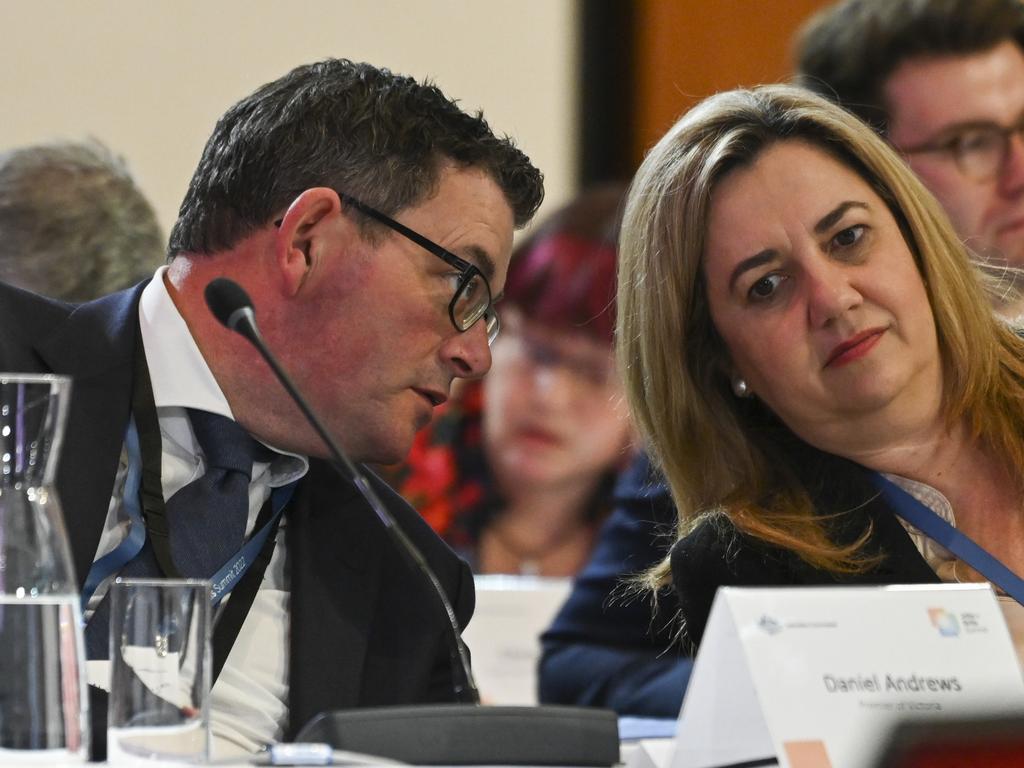
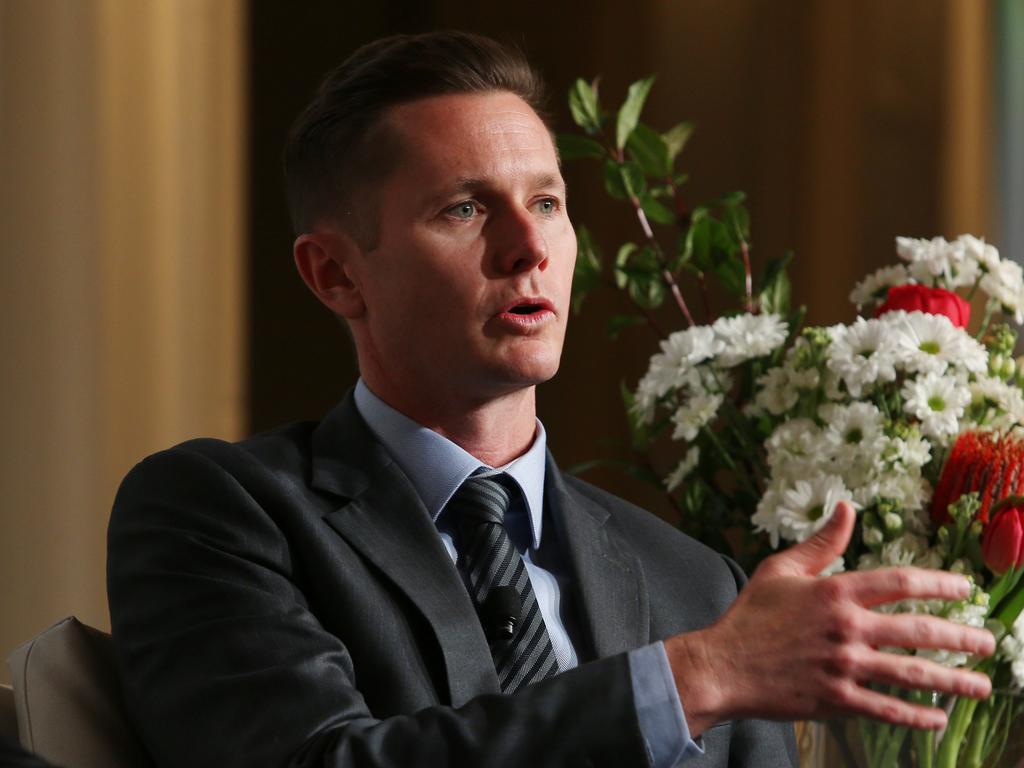



To join the conversation, please log in. Don't have an account? Register
Join the conversation, you are commenting as Logout